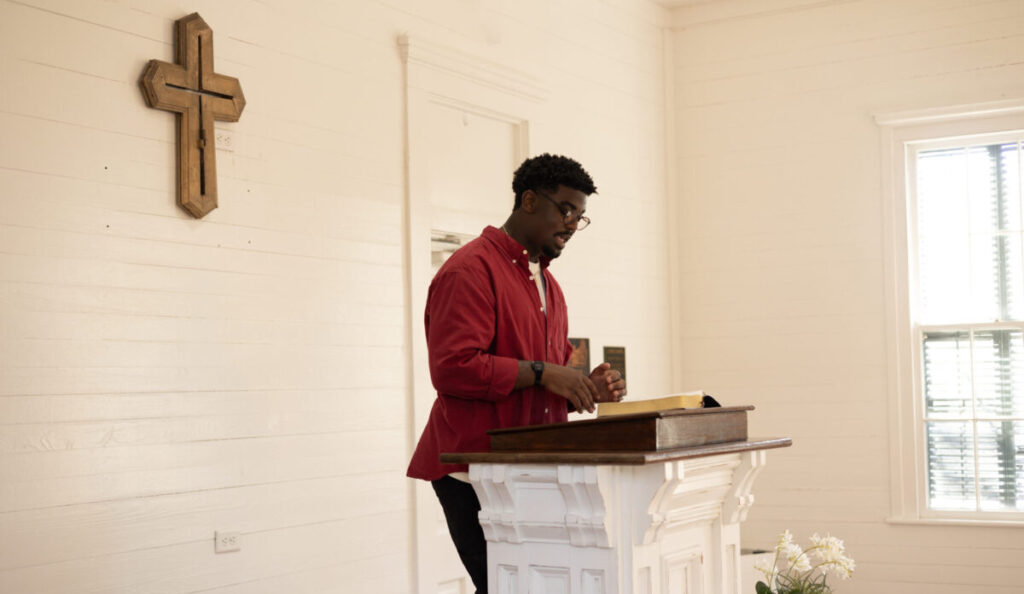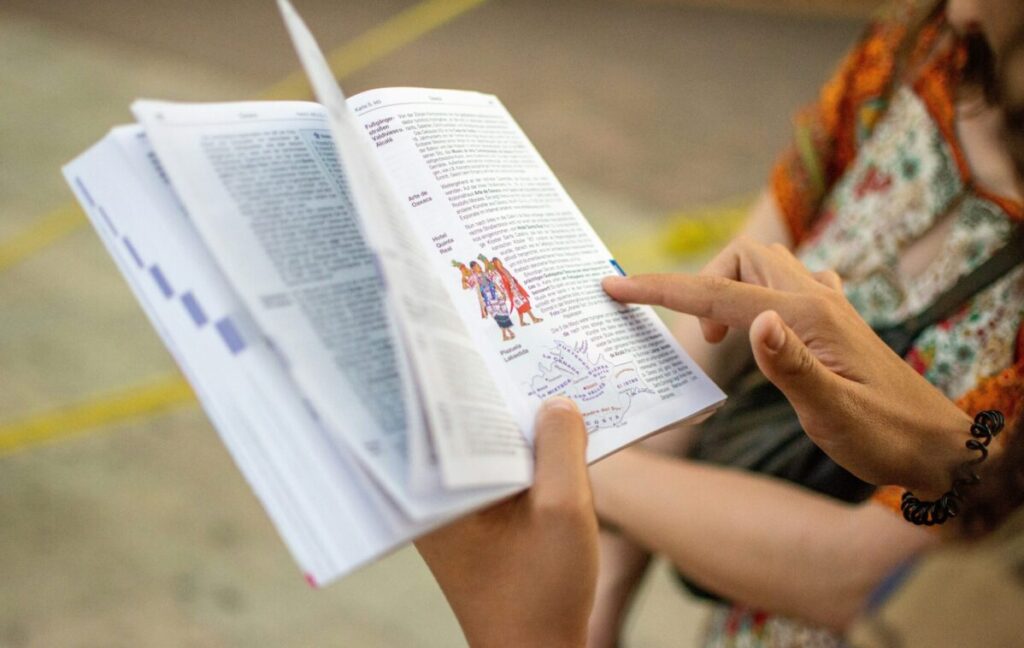Opportunities to meld film and faith can be rare for filmmakers, but that changed with the Seattle debut of a film festival with an emphasis on stories that “capture raw, truthful moments of spiritual redemption, struggle, inspiration, surprise.”
“The entire country is really turning to spiritual roots,” said Terry Duffy, a spokeswoman for the two-day Damah Film Festival that ended Oct. 11 (“Damah” in Hebrew means “metaphor that transforms”). “This was a wonderful time to show feature films that explore spiritual themes.”
From an Indian documentary about one of Hinduism’s holiest festivals (the Maha Kumbh Mela), to the tale of a eulogist plagued with doubt about the ethics of his profession, to an examination of one man’s failure to recognize Jesus during a chance encounter with a destitute woman, filmmakers journeyed across a wide spectrum of spiritual pathways in five-minute, 15-minute and 30-minute films.
First-time filmmakers alongside industry veterans vied for a spot among the 82 films — selected from 243 submissions — showcased at the festival. Of those, 19 snagged top honors and $15,000 in prize money.
“We didn’t care how they made the film — they could do it with a 35-millimeter camera and spend a million dollars, or they could make a film at home with a video camera,” said Sky Dimond, who serves on the festival’s board of directors. “We weren’t going to judge technical skill — what we were looking for was the power of the story, the eloquence of the story.”
Those elements are “crucial,” he added.
“The trend in big-budget Hollywood movies today is special effects in which the story gets lost, but our festival emphasizes that the story is primary,” Dimond said. “We were looking for films that spoke to people’s lives — films that take you to that ‘aha’ moment.”
Though the films varied in subject matter, many shared common threads, Dimond said.
“A lot of films dealt with the afterlife or with relationships — like what it means to love another human being when there are boundaries like race,” he said.
“One film from India was a documentary about the Kumbh Mela festival, and we also had a documentary on a good old down-home Southern tent revival,” he went on. “It was fascinating to see the similarities between the two slices of life. What drew people to the Ganges River for the festival and what drew people to the Southern tent revival were the same thing — the desire for something transcendent.
“We went into this not knowing what to expect — we thought we’d get 50 films,” he said. “Instead we were flooded with more than 200 submissions from around the world — Mexico, Canada, Europe, India, the Philippines. And we got submissions from across the board — animation, drama, comedy, dance, experimental, cartoons.”
The event resonated with a nation still nursing the wounds of the suicide plane hijackings that struck the Pentagon and World Trade Centers, Dimond hoped.
“I think there are thousands of people in our country right now asking spiritual questions — there’s this rush to churches and mosques and people are asking questions about why this happened,” he said.
“And the uncertainty about war does have people taking a closer look at the things that matter in their lives. In answering those questions, people are going to encounter spiritual themes at the heart of it all.”
The festival should resonate with Hollywood, too, said Ralph Winter, executive producer of “Planet of the Apes.” Winter judged the film entries along with entertainment critics and other filmmakers such as Howard Kazanjian (“Raiders of the Lost Ark”) and Bruce Joel Rubin (“Ghost,” “Deep Impact”).
“A redemptive theme is very common in Hollywood movies,” said Winter, a co-producer of the end-times movie “Left Behind.” “But the market for spiritual movies is one that (Hollywood) doesn’t know how to get to. Something like this brings that market forward.”
Dimond agreed.
“We hope this will help people realize there is an audience that does want to be impacted by spiritual themes,” he said.
Though showcasing spiritual films, festival organizers hoped to avoid “taking the arts process hostage with an agenda” — a pitfall that often claims evangelical films, Dimond said.
“They want to convert people, and the general public feels that agenda and they’re turned off by it,” Dimond said. “What our festival does is allow many different perspectives and let the films speak for themselves — if the gospel is told in a compelling way, it can take care of itself.
“The hope is that the festival will be transformative for people,” he said. “We hope people will find inspiration for their own spiritual journeys in these films.”





Share with others: